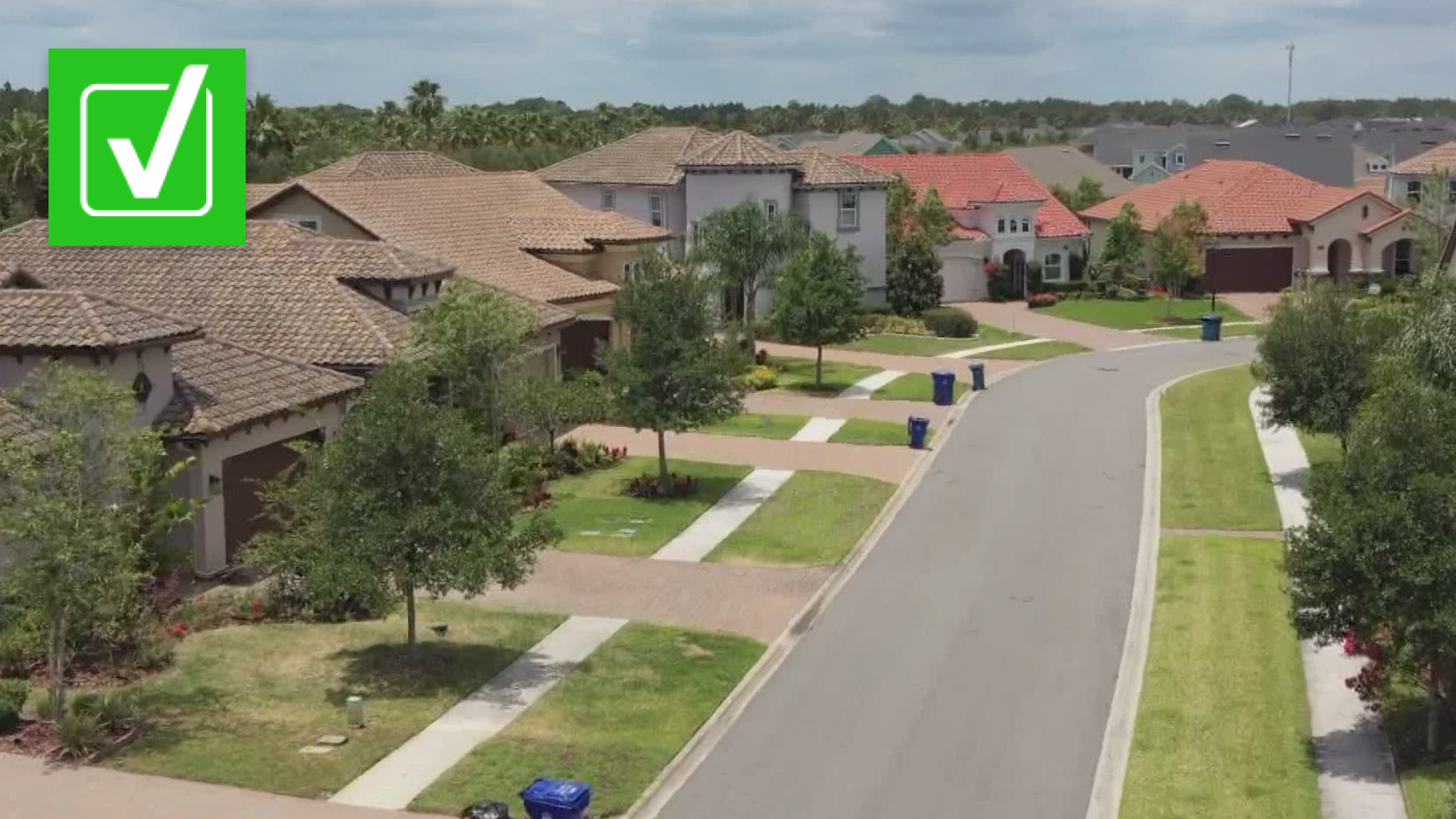JACKSONVILLE, Fla. — It’s a bubble, and all bubbles break eventually.
However, for would-be home buyers, the questions about the present real estate market begin with how soon, and how significantly?
We’ve been keeping tabs with one such hopeful homeowner, Jesse Rivers, who’s local to Jacksonville but has been renting the home he shares with his teenage son.
Rivers recently decided to pause his search because of the pressure that he, like so many bidders, is facing.
“All I know is, right now it feels right now like I’m forcing it," Rivers said. "And anytime I’ve ever felt like that, it just always hasn’t felt like the right thing to do.”
In a cash-flooded market that routinely is forcing buyers to forego appraisals and/or inspections, or pushing them off the table altogether, demand continues to far outweigh supply.
“The issue for builders is that they’re working as hard as they can to keep up with this insatiable demand,” Zillow home trends expert Amanda Pendleton recently told First Coast News. “And that’s really challenging.”
The challenge is compounded by building material supply line slowdowns caused by everything from the COVID-19 pandemic to weather events.
“Lumber prices are up 360% this year. We also have labor shortages,” Jacksonville-area senior loan officer Tanis Anderson confirmed.
Other pandemic-driven factors have contributed to the present situation.
Institutional investors usually more preoccupied with commercial real estate have turned their sights to residential property as the COVID crisis shifted much of the workforce away from the office and into home-based working environments.
Pendleton said the pandemic accelerated two trends already in force, affecting northeast Florida more than some other parts of the country.
“People were looking for relative affordability and they’re also looking for places that offer warmer weather,” Pendleton said.
And yet another factor, she said, is a brewing generational competition as retirees look to downsize to some of the very houses millennials are targeting as starter homes.
“And so we’ve got millennials and boomers who are both competing for that sort of bottom tier of homes […] something that’s a bit more affordable," Pendelton explained. “And that’s where we’re really seeing the greatest price growth appreciation.”
So, back to that first question: How soon will the bubble break? Buyers, brace yourselves.
“We expect that these trends are going to continue for many years to come,” Pendleton said. “Zillow is forecasting that home values are going to climb 12% over the next year.”
That’s a nationwide prediction, and she added, “Jacksonville is tracking what we’re seeing nationally.”
However, Pendleton said this does not mean there is not a chance home prices could ease.
“We are expecting to see inventory climb as the year goes on," Pendleton acknowledged. "It could moderate price growth a little bit but at least there’s going to be more options out there for buyers.”
Even if we somehow knew when home prices will materially adjust downward, it’s not that simple. The historically low-interest rates that are yet another feeder of the buying frenzy could be much higher by then.
Pendleton had a viewpoint about that variable as well.
“We are expecting those rates to climb as the year goes on, as we see more of an economic recovery,” she explained.
In other words, waiting might be more costly even if house prices correct in favor of buyers.
“You’re going to have more buying power if you can get into the market now than, say, waiting until the fall or even early next year,” Pendleton predicted.
Financial planner Bob Horne with NuVenture Financial Group in Jacksonville worded it another way.
“It’s really a risk of whether you buy something now at really high prices with a low-interest rate, or you wait a year or two and maybe buy something maybe a little better value or price but potentially higher interest rates," Horne said.
What kind of difference can that make?
Assuming a buyer borrows $200,000 with a 3%, 30-year mortgage, their monthly payment would increase about $120 if the interest rate were 5% instead.
At that 5% rate with the same 30-year note, a buyer purchasing a $330,000 home would have to increase their down payment from $130,000 to about $170,000, or see the price drop to $290,000, to nullify that $120 monthly mortgage payment difference.
Anderson offered a thought about that trade-off.
“Do you care about the price or do you care about the monthly payment? And most people are always going to say it’s the monthly payment.”
Which would seem to favor the ‘buy-sooner-than-later’ approach if you can find a seller who’ll take your offer over everyone else’s.
The reality is, no one can say for sure when that precise optimal moment is for any individual. Despite what might be a sobering outlook from Pendleton for people choosing to wait it out, she emphasized that the most important factors might be internal, not external.
Factors no one else can decide for you.
“The best time to buy,” she said, “is when it’s the best time for you and for your family.”

